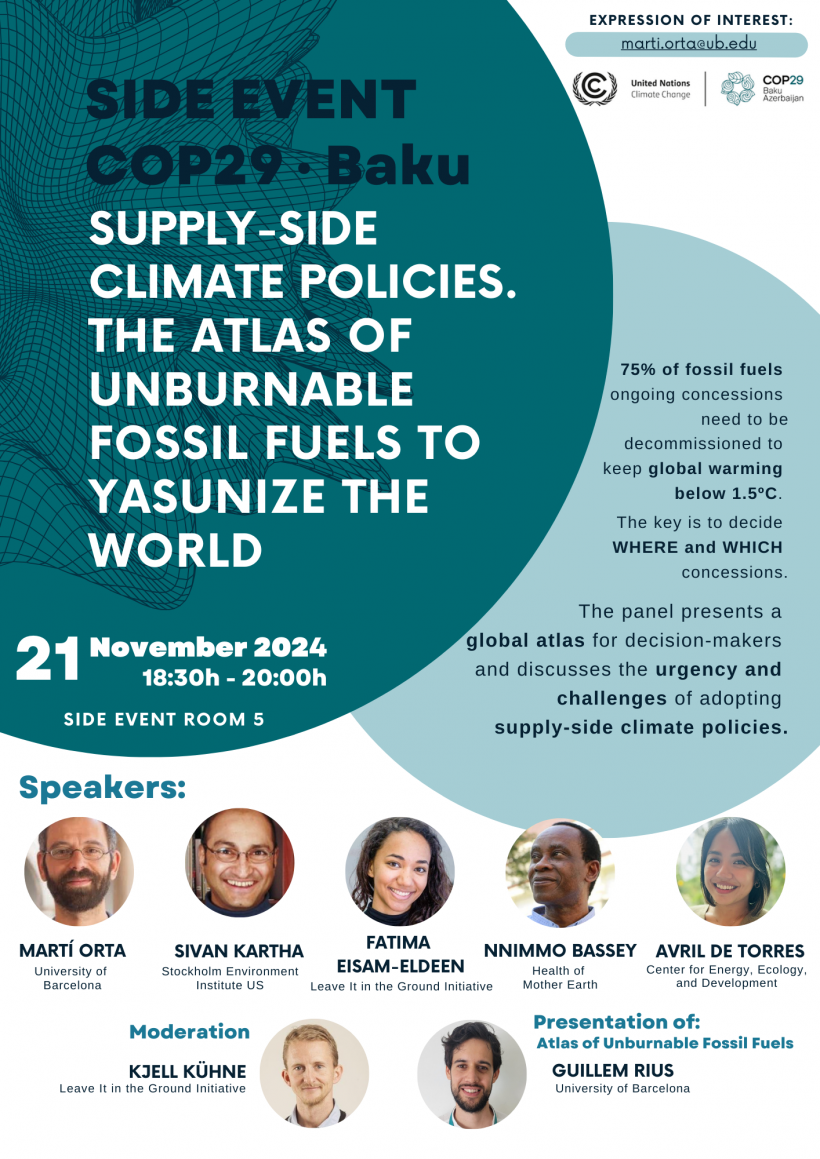
The atlas of the world's non-extractable fossil fuels in the world
Extreme weather events are becoming more frequent, intense and destructive, and strong action is needed to mitigate climate change. COP29, chaired by Mukhtar Babayev, Minister of Ecology and Natural Resources of the Republic of Azerbaijan, will be the international focal point to urgently address climate change priorities and to bring together common agreements and commitments on environmental and climate action across the globe.
In this context of climate emergency, the UB team is the author of a study (Nature Communications, 2024) that presented the atlas of non-extractable fossil fuels in the world.
Thus, in order not to exceed global warming of 1.5°C, exploration for new fossil fuel deposits should be completely halted, the granting of new fossil fuel extraction licences should be halted, and a very significant share (75%) of oil, gas and coal extraction projects currently in production or already developed should be shut down prematurely.
In the framework of COP29, on 21 November, members of the Extractive Industries, Planetary Health and Environmental Justice group of the UB will lead the parallel session “Supply-side climate policies: The atlas of unburnable fossil fuels to yasunize the world!”, which will be the framework for the presentation of the global atlas to guide decarbonisation policies. Participants will include Martí Orta-Martínez and Guillem Rius-Taberner (UB, IRBio), Sivan Kartha (Stockholm Environment Institute, Sweden), Fatima Eisam-Eldeen (Leave It in the Ground initiative, LINGO), Nnimmo Bassey (Health of the Mother Earth Foundation) and Avril de Torres (Centre for Energy, Ecology and Development, Philippines).
The scientific session, moderated by expert Kjell Kühne (LINGO), will be the setting for a debate on how to move forward in applying environmental and social criteria to climate and energy policies across the globe, as well as how to avoid the exploitation of oil resources in the most socio-environmentally sensitive areas on a global scale.